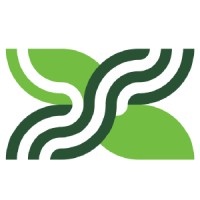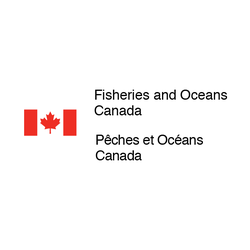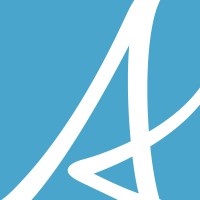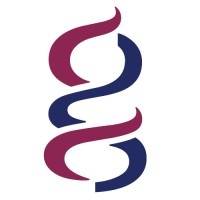
RDAR — Irrigation Targeted Call
At a glance
- Maximum amount : 500,000 $
- Up to 60% of project cost
- Closing date : August 15, 2024
- Agriculture, forestry, fishing and hunting
- Manufacturing
- Alberta
- Non-profit
- Public or Parapublic institution
- For-profit business
- All revenue ranges
- All organization sizes
- Rural or Northern Residents
- Higher Education
- Research
- Environment
- Economic, Social and Community Development
- Business Associations
- Rural / Remote communities
- Business owners / entrepreneurs
- Nonprofits / charities
- Academia / students
- All structures
- Provincial
Overview
The Irrigation Targeted Call for Proposals aims to support research in Alberta that enhances irrigation efficiency, improves livestock and crop productivity, and promotes environmental stewardship. The program invites eligible applicants, including marketing boards, educational institutions, and for-profit companies, to submit projects that demonstrate economic benefit, technological advancement, and sustainability within the province's agriculture sector. Projects should focus on activities such as developing new irrigation technologies, improving crop management, and ensuring responsible water use.
Activities funded
This grant supports research projects that aim to improve productivity, efficiency, and environmental stewardship in Alberta's irrigation sector. The eligible activities focus on innovative practices and technologies that enhance water use and contribute to the sustainability of the agricultural industry.
- Research on increasing yield, quality, and efficiency of nutrient and water use for irrigated forages in the cattle feeding industry.
- Development of best management practices for maintaining water quality in feedlot reservoirs.
- Exploration of runoff capture from feedlots for reuse in irrigation.
- Practices supporting new marketable crops with potential for value-added production in Alberta.
- Genetic improvement studies for irrigated crops focusing on yield, quality, agronomy, and water use efficiency.
- Agronomic research and pest control analysis for irrigated crops.
- Diversification of crop rotations through new cropping options under irrigation.
- Forecasting and modeling for future irrigation storage needs.
- Predictive analysis for optimal water application times and quantities.
- Development and testing of technology for increased irrigated water use efficiency and farm profitability.
- Introduction of surface and subsurface drip systems for Alberta.
- Implementation of variable rate irrigation technology and decision support systems.
- Strategies to control invasive algae within irrigation infrastructure.
- Enhancements in filtration technology and systems for managing algae and silt.
- Using sensor data for predictive water allocation based on crop conditions.
- Utilization of AI and machine learning for improved water management practices.
- Evaluation of economic and environmental impacts of invasive species.
- Assessment of alternative energy sources for irrigation.
- Investigating sustainable strategies for managing infrastructure-related invasive species and weeds.
Eligibility
The Irrigation Targeted Call grant eligibility requires applicants to meet specific criteria related to their involvement in the Alberta livestock or crop industry.
- Applicants must be qualified organizations directly or indirectly participating in service and development in Alberta's livestock or crop industry.
- Organizations must be in good standing and not in default under any agreements or programs with RDAR.
- Eligible applicants include:
- Marketing boards and commissions established under the Marketing of Agriculture Products Act.
- Educational institutions, including universities, colleges, and technical schools.
- Government organizations and agencies.
- Incorporated not-for-profit agricultural associations representing Alberta's agriculture producers.
- For-profit companies operating in Alberta contributing to research benefitting Alberta's crop and livestock producers.
- The research may occur within or outside Alberta, provided at least one team member is in Alberta, and benefits are returned to Alberta's producers.
Who is eligible?
Funding through the Irrigation Targeted Call for Proposals is available to qualified applicants directly or indirectly participating in the development of Alberta's livestock or crop industry. Eligible organizations must be in good standing with no defaults under other RDAR agreements or programs. Entities eligible to apply include:- Marketing boards and commissions established under the Marketing of Agriculture Products Act.- Educational institutions such as universities, colleges, and technical schools.- Government organizations and agencies.- Incorporated not-for-profit agricultural associations representing Alberta's agriculture producers.- For-profit companies operating in Alberta and contributing to research that benefits Alberta's crop and livestock producers.Additionally, the research should take place within or outside Alberta as long as at least one project team member is based in Alberta, and the benefits accrue to Alberta's producers.Who is not eligible
This grant opportunity is open to a wide range of eligible organizations; however, there are certain restrictions based on the nature of activities or the stage of development the projects are aligned with.
- Companies focusing on the commercialization of new technologies beyond pilot studies.
- Entities engaging in marketing activities not related to specific research objectives.
- Organizations conducting private research and development without broader community or industry impact.
Eligible expenses
The Irrigation Targeted Call for Proposals seeks innovative projects that enhance irrigation technology, improve agricultural productivity, and promote sustainable environmental practices. Eligible activities focus on research, development, and analysis tailored to the unique needs of Alberta's agricultural sectors.
- Increase yield, quality, and efficiency of nutrient and water use for irrigated forages supporting the cattle feeding industry.
- Develop best management practices for feedlot water reservoirs to maintain water quality and animal health.
- Explore practices for capturing runoff from feedlots for irrigation reuse if economically viable.
- Develop or improve practices supporting new, marketable, irrigated crops with value-added potential in Alberta.
- Support genetic improvements for yield, quality, agronomy, and water use efficiency in irrigated crops with significant value-added potential.
- Conduct agronomic studies and pest control analyses for irrigated crops.
- Adapt new cropping options for production under irrigation to diversify crop rotations and improve system management.
- Engage in forecasting and modelling to predict future on-stream storage needs.
- Use predictive analysis to optimize water application timings and volumes based on crop needs and water availability.
- Develop and test products and technologies to enhance water use efficiency and farm profitability, including drip systems and variable rate irrigation technology.
- Control invasive algae within irrigation systems and improve filtration technologies at the farm level.
- Utilize sensor data for predictive modelling to manage water allocation based on crop conditions.
- Explore AI and machine learning applications for optimizing water management practices.
- Evaluate economic and environmental impacts of invasive species, working to increase public awareness and control methods.
- Assess alternative energy sources for irrigation applications to power infrastructure sustainably.
- Research alternative strategies for managing and controlling invasive species and weeds related to irrigation infrastructure.
Eligible geographic areas
This grant is specifically aimed at organizations and companies contributing to the Alberta livestock or crop industry. Eligible locations focus on ensuring that the benefits are returned to Alberta's producers.
- Companies operating within Alberta.
- Research can occur outside Alberta if one team member is based in Alberta and the results benefit Alberta's producers.
Selection criteria
The selection of projects under the Irrigation Targeted Call for Proposals involves several criteria to ensure that each project aligns with the program’s objectives and offers measurable benefits to Alberta's agricultural sector.
- Alignment to priorities and benefits outlined in the priorities.
- Projects demonstrate measurable, reportable and verifiable impact on the target producer group.
- The uniqueness of the project relative to other irrigation projects underway.
- Project timelines are achievable and appropriate.
- Adoption / commercialization potential of the project's result.
- Budget items are clear and justified.
How to apply
Prepare Letter of Intent (LOI)
- Review all eligibility requirements and priority areas for the program.
- Prepare a Letter of Intent that outlines your proposed research project's alignment with the program goals.
- Ensure potential benefits to Alberta producers are clearly articulated.
Submit LOI via ARGO
- Create an account or log into the Agriculture Research Grant Organizer (ARGO) system at rdar.smartsimple.ca.
- Select ‘Targeted Call for Irrigation’ within the ARGO system.
- Submit the prepared Letter of Intent before the intake deadline.
Await LOI Review
- Await the review of your submitted LOI by RDAR.
- Prepare any additional information if requested for the evaluation.
Invitation for Full Proposal
- If the LOI is approved, await an invitation to submit a full proposal.
- Follow instructions provided by RDAR for the preparation of a full proposal.
Full Proposal Submission
- Prepare a detailed full proposal with objectives, methodologies, budget, and extension plans.
- Submit the full proposal via ARGO, ensuring all criteria are met and documents are attached.
- Confirm submission through the system and retain any confirmation for records.
Confirmation and Feedback
- Receive feedback from RDAR on the status of the full proposal.
- Participate in any follow-up processes if required.
Additional information
Applicants will be required to submit detailed interim reports and financial statements, as well as a final report and financial statements. Funding from RDAR must be acknowledged on appropriate signs, posters, and publications dealing with the project.
- Applicants must submit reports online through ARGO at rdar.smartsimple.ca.
- RDAR's name and logo must comply with their Grant Communications Guide.
- Successful projects can receive funding up to $500,000 for capital expenses.
Contacts
Frequently Asked Questions about the RDAR — Irrigation Targeted Call Program
What is the RDAR — Irrigation Targeted Call?
How much funding can be received?
Who is eligible for the RDAR — Irrigation Targeted Call program?
What expenses are eligible under RDAR — Irrigation Targeted Call?
Who can I contact for more information about the RDAR — Irrigation Targeted Call?
Where is the RDAR — Irrigation Targeted Call available?
Is the RDAR — Irrigation Targeted Call a grant, loan, or tax credit?
More programs like this

Aquatic Habitat Restoration Fund (AHRF)
Fisheries and Oceans Canada (DFO)
Capital Retrofits
Government of Alberta
Energy Management Information Systems (EMIS)
Government of Alberta
Business Scale-up and Productivity (BSP) in the Prairie provinces
Government of Canada
Alberta Carbon Capture Incentive Program (ACCIP)
Government of Alberta
Alberta Innovates — Agriculture & Environment (AE) Program
Alberta Innovates
Regional Defence Investment Initiative (RDII) in the Prairie provinces
Prairies Economic Development Canada (PrairiesCan)
Regional Tariff Response Initiative (RTRI) — Prairie Provinces
Prairies Economic Development Canada (PrairiesCan)
Genomics Data Connect: Accelerating Agriculture Innovation
Genome Alberta